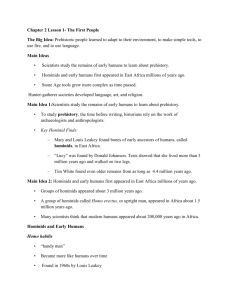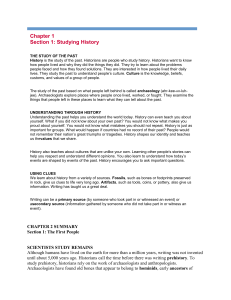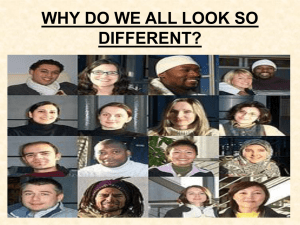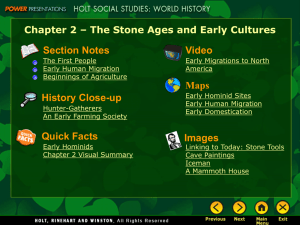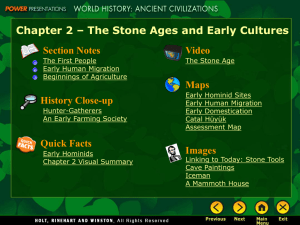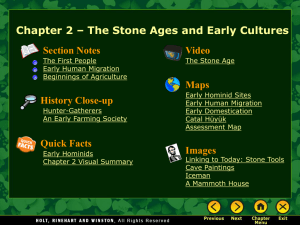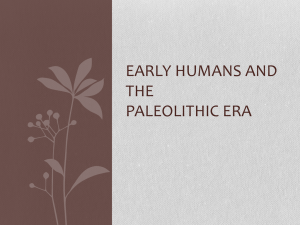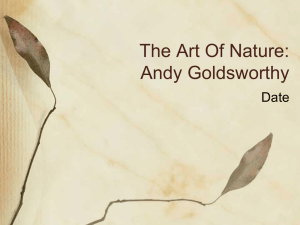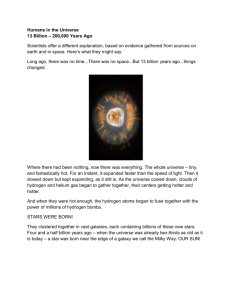World History Chapter 2 Review Questions study the remains of
advertisement
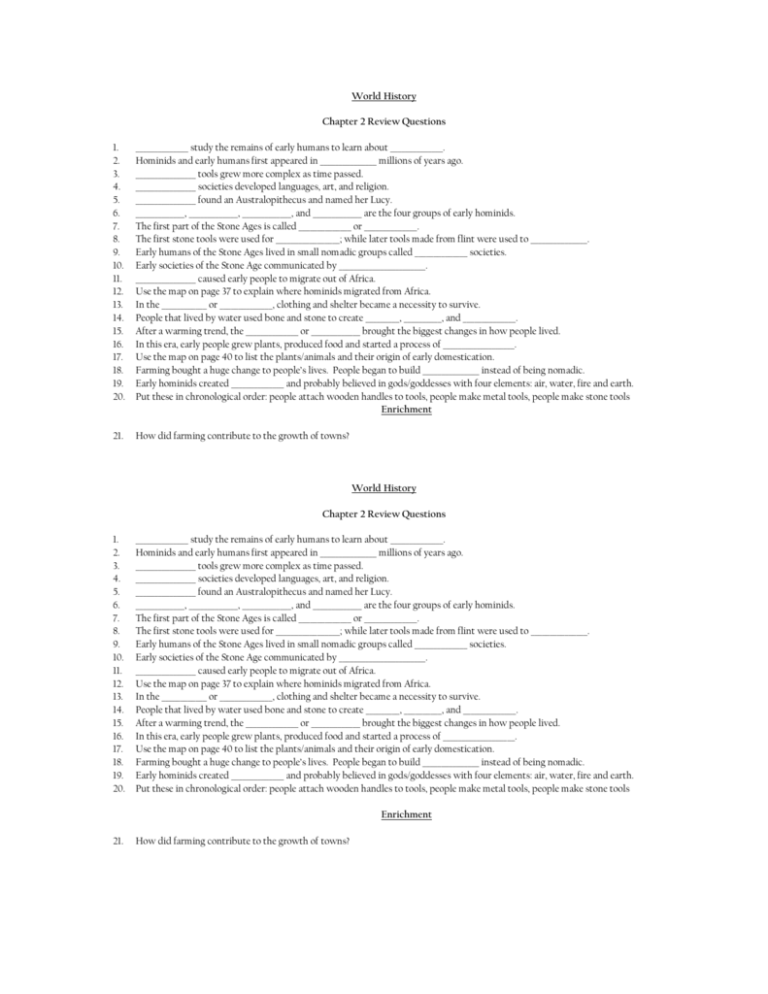
World History Chapter 2 Review Questions 1. 2. 3. 4. 5. 6. 7. 8. 9. 10. 11. 12. 13. 14. 15. 16. 17. 18. 19. 20. ______________ study the remains of early humans to learn about ______________. Hominids and early humans first appeared in _______________ millions of years ago. ________________ tools grew more complex as time passed. ________________ societies developed languages, art, and religion. ________________ found an Australopithecus and named her Lucy. _____________, _____________, _____________, and _____________ are the four groups of early hominids. The first part of the Stone Ages is called ______________ or ______________. The first stone tools were used for _________________; while later tools made from flint were used to _______________. Early humans of the Stone Ages lived in small nomadic groups called ______________ societies. Early societies of the Stone Age communicated by _______________________. ________________ caused early people to migrate out of Africa. Use the map on page 37 to explain where hominids migrated from Africa. In the ____________ or ______________, clothing and shelter became a necessity to survive. People that lived by water used bone and stone to create _________, __________, and ______________. After a warming trend, the ______________ or _____________ brought the biggest changes in how people lived. In this era, early people grew plants, produced food and started a process of ___________________. Use the map on page 40 to list the plants/animals and their origin of early domestication. Farming bought a huge change to people’s lives. People began to build _______________ instead of being nomadic. Early hominids created ______________ and probably believed in gods/goddesses with four elements: air, water, fire and earth. Put these in chronological order: people attach wooden handles to tools, people make metal tools, people make stone tools Enrichment 21. How did farming contribute to the growth of towns? World History Chapter 2 Review Questions 1. 2. 3. 4. 5. 6. 7. 8. 9. 10. 11. 12. 13. 14. 15. 16. 17. 18. 19. 20. ______________ study the remains of early humans to learn about ______________. Hominids and early humans first appeared in _______________ millions of years ago. ________________ tools grew more complex as time passed. ________________ societies developed languages, art, and religion. ________________ found an Australopithecus and named her Lucy. _____________, _____________, _____________, and _____________ are the four groups of early hominids. The first part of the Stone Ages is called ______________ or ______________. The first stone tools were used for _________________; while later tools made from flint were used to _______________. Early humans of the Stone Ages lived in small nomadic groups called ______________ societies. Early societies of the Stone Age communicated by _______________________. ________________ caused early people to migrate out of Africa. Use the map on page 37 to explain where hominids migrated from Africa. In the ____________ or ______________, clothing and shelter became a necessity to survive. People that lived by water used bone and stone to create _________, __________, and ______________. After a warming trend, the ______________ or _____________ brought the biggest changes in how people lived. In this era, early people grew plants, produced food and started a process of ___________________. Use the map on page 40 to list the plants/animals and their origin of early domestication. Farming bought a huge change to people’s lives. People began to build _______________ instead of being nomadic. Early hominids created ______________ and probably believed in gods/goddesses with four elements: air, water, fire and earth. Put these in chronological order: people attach wooden handles to tools, people make metal tools, people make stone tools Enrichment 21. How did farming contribute to the growth of towns?
